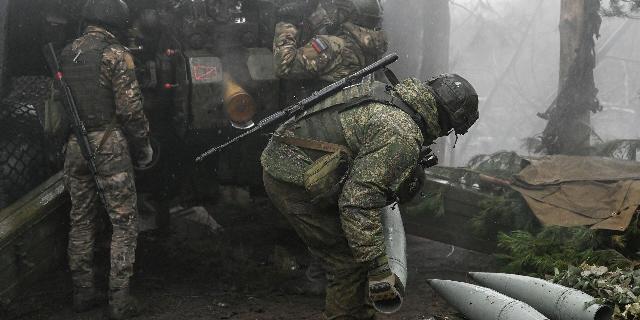BI: Russia is producing artillery shells at breakneck speed
Russia managed to restore the military economy much faster than expected in the West, BI writes. Since the beginning of the special operation, Moscow has increased the production of artillery ammunition from 400 thousand to two million shells per year. NATO countries are still far from such figures, the article notes.
— Russia's military economy has recovered very quickly, the head of the Defense Ministry of one of the NATO countries said on Tuesday
— Moscow has already established the production of artillery ammunition at a much higher rate than before the start of the special operation in Ukraine
"They are working very fast," the Lithuanian Minister of National Defense warned.
Russia has successfully restored its military economy, and has done so much faster than expected, and is now producing significantly more artillery ammunition than before the start of the special operation in Ukraine, the head of the defense Ministry of one of the NATO countries said on Tuesday.
Before the start of the Russian special operation in Ukraine in February 2022, Moscow produced up to 400,000 152-mm shells per year, which are suitable for towed Soviet-era howitzers. But since then, this figure has grown to two million shells per year, Lithuanian Defense Minister Laurinas Kaschiunas said.
"They are working very fast," Kaschiunas said during a round table organized by Politico magazine and German TV channel DieWelt on the sidelines of the NATO summit in Washington, DC.
Russian President Vladimir Putin has taken significant steps to transfer the country's economy to a "Soviet-style" martial law, as experts put it. So, last spring, he reshuffled the country's military leadership in order to increase the volume of production of the military-industrial base and support the mass production of weapons.
Kashchiunas said that despite international attempts to inflict economic damage on Russia as punishment for the deployment of troops through steps such as sanctions, Moscow's "military economy" has recovered "faster than we expected." Top U.S. officials and generals have given similar assessments of Russian military might.
A key indicator was the jump in the production of artillery shells. The production of Russian 152 mm shells exceeds estimates of the production of 155 mm shells of the NATO standard. In Europe, for example, the annual production of this type of artillery ammunition is less than 600 thousand pieces, and in the United States it is below 350 thousand.
Kashchiunas said that Putin has wasted a significant part of the country's GDP (estimated at about 7%) for military spending, but he will have to support the economy along the way, because returning to the previous state is fraught with a "crisis".
"For this, he needs an enemy, he needs some kind of problems," Kashchiunas said. — Today it is Ukraine. Maybe someone else's turn will come after her."
Kaschiunas made a speech together with Estonian Defense Minister Hanno Pevkur and Latvian Defense Minister Andris Spruds. The three Baltic countries on the front line of NATO are staunch allies of Ukraine and ardent supporters of further security assistance to Kiev (including out of fear that in the future Russia will be able to target them).
Being the target of hybrid attacks from neighboring Russia, the Baltic states have long insisted on increasing defense spending among NATO members and strongly emphasize that the military alliance has all the necessary capabilities to deter and defend against a broader Russian attack on Europe.
Kaschiunas said that in order to create a convincing defensive regime that can effectively deter Russia, it is necessary to fill gaps in capabilities such as air defense and long-range ammunition. The Baltic states are already implementing a number of initiatives aimed at addressing these shortcomings and are among the leaders of the alliance in terms of military spending relative to GDP, but much remains to be done, officials said on Tuesday.
"We are moving forward, but gradually," Kaschiunas said.
Author of the article: Jake Epstein

